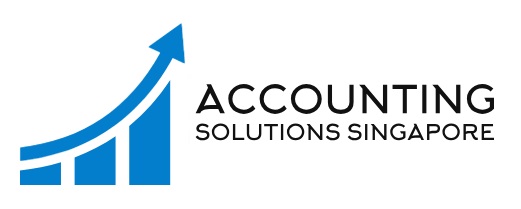
Guidance to carry out Financial Reporting Duties for Singapore Companies
Strong and vibrant markets are dependent on high-quality financial information.
Financial statements are becoming increasingly important as investors, suppliers, financial institutions, customers, company directors, and corporate executives seek to better understand the business.
In recent years, the business environment has also become more complex and challenging. Consequently, financial reporting standards have become increasingly complex, requiring more professional judgment on the part of those preparing financial statements.
For instance, accounting for business acquisitions, the measurement of fair value for assets, and the recognition of revenue for multi-element transactions are examples. It is important that the market remain confident that financial reporting is transparent, accurate, and of high quality.
The ACRA has set up the Financial Reporting Surveillance Program to prevent inaccurate financial reports and/or non-compliance with prescribed accounting standards.
Singapore Companies Act Requirements
Under the Companies Act (the “Act”) sections 201(2) and 201(5), Directors must lay before the annual general meeting a set of financial statements that:
- Comply with Accounting Standards issued by the Accounting Standards Council (ASC);
- The financial position and performance of the company should be presented in a true and fair manner.
Singapore company’s directors must maintain a system of internal accounting controls. The company should also keep proper accounting and other records necessary for preparing accurate and fair financial statements to comply with sections 199(2A) and 199(1) of the Act.
Below are some guidelines to assist Singapore companies’ directors in carrying out their financial reporting duties.
1. Review of financial statements
Directors (non-executive or executive) should take all reasonable steps to ensure financial statements are reviewed with diligence and care before presenting to the shareholders and file annually with ACRA.
It is the responsibility of the company directors to read and understand the content of the financial statements to make sure the data is complete and accurate to their best understanding.
Even if the directors are not proficient in finance or accounting, they should still question any areas of concern that do not match their understanding of an arrangement.
The directors should apply a certain degree of skepticism when it relates to views expressed by the management team in regards to estimates and judgments.
2. Fundamental financial literacy
Directors do not need to be experts in finance and accounting. They should have up-to-date and essential knowledge of the Singapore accounting principles to complete an in-depth review of the financial statements.
For directors who do not have the relevant skills, there is the option to attend training or seek help from experts in Singapore.
One practical course is the Director Financial Reporting Essentials which is jointly organised via the Institute of Singapore Chartered Accountants (ISCA) and Singapore Institute of Directors (SID).
3. Senior management appointments
In the process of making senior management appointments (Chief Financial Officer (CFO) and Chief Executive Officer (CEO)), the directors must make sure that they have the right integrity, experience, competency and knowledge to undertake their key role.
Directors of a listed company must comply with the Code of Corporate Governance and disclose in the Annual Report whether assurance has been received from the Group CEO and Group CFO:
A. The financial statement provides a fair and accurate view of the Group’s finances and operations, and all financial records are up-to-date and appropriately maintained; and
B. The adequacy of the Group’s internal control systems, procedures and risk management.
The assurances provided by the Group CEO and Group CFO should not in any way diminish the responsibilities of the directors. These should be seen to show that the management has complete oversight and controls over the process of financial reporting of the underlying transactions.
4. Set up a competent in-house finance function
The directors are responsible to ensure that the management has competent finance team to prepare high-quality and accurate financial information.
The company should employ a team of competent and qualified accountants. These accountants should receive ongoing professional training to ensure they stay abreat with the latest changes in financial reporting frameworks.
5. Engage external professional accounting services in Singapore
Directors have the option to outsource the day-to-day accounting and preparation of financial statements to a third-party annual compilation services firm.
However, the directors are responsible to ensure that the accounting service and compliance advice were given by a professional accountant with the appropriate knowledge and expertise.
The advice given must be objective and unbiased.
6. Work with independent audit firms in Singapore
Independent auditors must have direct access to speak to a senior company representative. The senior representive is responsible for acting on significant audit findings, which may relate to accounting practices that are not right for the company.
The director must act to resolve the issues brought to their attention by the auditors and request for professional assistance if necessary.
They should not rely on the auditors to form an opinion on what action to take. This could impact the objective nature of the independent audit.
Directors should also understand the audit exemption criteria and to discuss with company secretarial team on an annual basis.
7. Establish internal accounting and control system
Directors must make sure the management puts in place appropriate accounting policies, creates proper internal processes and controls, and ensure accurate and complete accounting records at kept at all times.
The responsibility to oversee the accurate record keeping applies whether the company engages annual compilation services or maintained in-house.
The above serves as a guide to assist company’s directors to comply with certain significant responsibilities relating to financial reporting. This does not provide a comprehensive definition of the duties applicable to directors under the Company Act or related legislation. Whenever in doubt, the directors should seek legal advice to clarify their responsibilities.
Contact Company Secretarial Team
Contact our team via Contact Form. Our team will arrange a time to discuss the company secretarial services.
